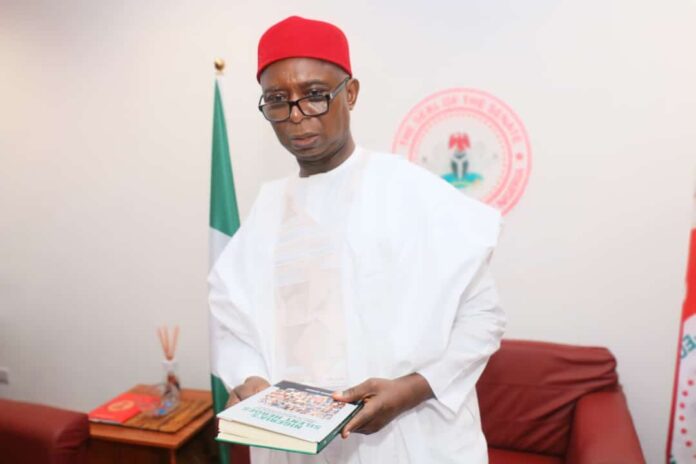By Odita Sunday
In a candid exposition on Nigeria’s economic challenges, Senator representing Delta North senatorial district and also a Solicitor of the Supreme Court of England and Wales, Ned Nwoko, has criticised the longstanding policy that facilitates the dual circulation of foreign currencies alongside the naira in Nigeria.
He described this practice as a surrender of Nigeria’s economic sovereignty, heavily influenced by historical ties and decisions that prioritized foreign currencies over the national currency.
Nwoko delivered a compelling discourse on the critical need to restore and fortify the country’s economic independence in a Television interview programme.
“The fundamental issue at hand is the historical context in which we agreed to allow foreign currencies to circulate within our borders, thus undermining our own sovereign currency, the naira,” Nwoko explained.
He emphasised that this practice has contributed to the relegation of the naira, limiting its recognition and use beyond Nigerian borders.
Nwoko outlined a bold three-pronged strategy to reclaim the economic narrative, which can be implemented immediately by President Bola Ahmed Tinubu to grow the economy.
He listed them to include mandating the use of the naira for all domestic transactions and effectively eliminating the payment of foreign workers in dollars.
Nwoko said such workers would instead be paid in naira, and the funds would remain within the Nigerian economy.
He also highlighted repatriating Nigeria’s foreign reserves, which is currently held in accounts overseas, suggesting that these should be managed by the Central Bank of Nigeria (CBN) to provide low-interest loans to young Nigerian entrepreneurs.
Nwoko further suggested eliminating domiciliary accounts in commercial banks and prohibiting the payment of rents, hotel bills, or any other transactions in foreign currencies within Nigeria.
He asserted that by ensuring all transactions within Nigeria are conducted in naira, it will create a demand for the country’s currency that compels international recognition and respect.
Meanwhile, Nwoko also criticised the dependence on the International Monetary Fund (IMF) and the World Bank, advocating instead for home-grown solutions tailored to Nigeria’s unique economic landscape.
Furthermore, the senator addressed the broader implications of his proposed reforms, predicting that they would stabilise the domestic market and enhance the global standing of the naira.
“If we take these steps, international businesses and tourists will seek out the naira, thus naturally elevating its status and value,” he stated.
The senator further called for an “economic revolution” led by presidential action and highlighted a critical juncture for Nigeria’s future, urging a departure from conventional policies in favour of bold and independent economic strategies.
Nwoko’s remarks, however, sparked a significant dialogue about Nigeria’s economic policies and its path toward achieving true financial autonomy.



